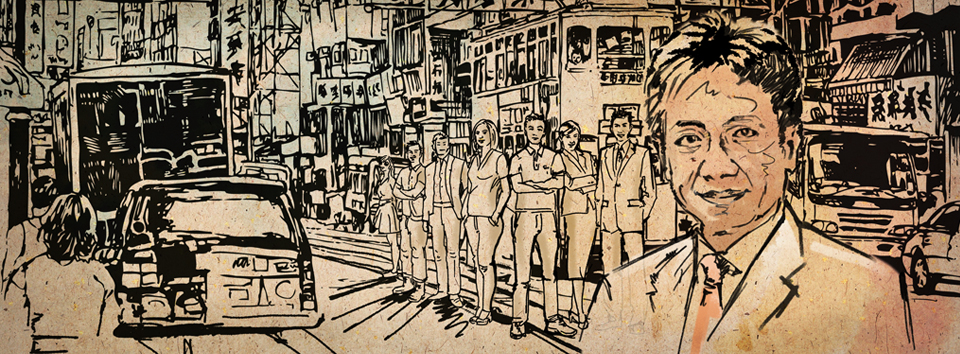Q: Professor Cheung, can you briefly describe what social innovation is?
A: I would summarise social innovation as the advance in knowledge, products or service, or the new application of business models, processes and methods in tackling social problems. In other words, to solve social problems with new methods.
Q: What is the objective of the Social Innovation and Entrepreneurship Development Fund (SIE Fund)?
A: The SIE Fund is tasked with the objective of linking up resources and efforts from different sectors to support social innovators to tackle social problems. As the Fund is set up under the Commission on Poverty, our focus will very naturally falls on poverty alleviation and prevention of social exclusion.
Q: The government, business sector and non-government groups have been spending a lot of efforts on helping the disadvantaged groups. How will the SIE Fund contribute?
A: The SIE Fund may help us “think out of the box” in examining how we can do better with current resources. Take the example of food assistance, many NGOs are providing this services in different districts. However, their service may be confined only to certain street blocks or specific groups. How about demands beyond that? We hope the SIE Fund will help set up a platform for information sharing and matching of resources and needs, resulting in better utilisation of spare capacity and meeting demands without using additional resources.
Q: How is Hong Kong doing in terms of social innovation? Can we do better?
A: We may learn from the UK. A financing institution called UnLtd invites members of the local community to put forward proposals on solving problems of the community. In addition to funding support, UnLtd will line up corporations and executives to coach the proponents in executing the proposals, some of which may develop into projects applicable to a larger community. Hong Kong people, some of whom we refer to as “otaku” or nerds, are receiving numerous amount of information every day, especially from the internet. They may have their own ideas and some are definitely practical. The key is to give these dreamers the hopes and chances. Without attempts, dreams end up with dreams. Not every dream can be realised. Having said that, the experience is still precious. Successful or not, there must be something learnt from the coaching business experts.
Q: But how can we involve those dreamers?
A: The Task Force will conduct an extensive stakeholder engagement exercise. This exercise aims to promote the Fund to the public. Two important innovative features of the Fund will be covered. Firstly, unlike other government funding schemes for social enterprises which are targeted at organisational applicants, the SIE Fund is open to individuals. Secondly, organisations other than NGOs and s88 charitables are welcome. It provides the chance for organisations and individuals who previously would have few channels to participate.
Q: Are there other differences between the SIE Fund and existing entrepreneurship funding?
A: The objective of the SIE Fund is to address social issues and in particular, poverty. The applicants must present very clearly which social issue they are attempting to tackle. We will also accord priority on the social impacts when considering their proposals.
Q: Would you introduce the work of the Task Force?
A: The Task Force comprises members from different sectors: NGO, academic, business, as well as the government. Social innovation is relatively new in Hong Kong and the Task Force has to arrive at a consensus on the definition of social innovation as well as on how to make the best use of the money. We have a good mix of membership and this is very important to avoid any bias. As of mid-September, we have held seven meetings and numerous working lunches. I am glad to see that all members are contributing whole-heartedly with their expertise, and the results are very fruitful. I would like to thank them for their contribution.
Q: What are the critical success factors for the Fund?
A: First of all, it is the devotion of the Task Force members. All have done excellently in this regard. However, it is only part of the ingredients. We also need the commitment and support of the society, including the business sector, so that we can mobilise resources from all parties to tackle social problems and to pursue a harmonious society.
Q: How would you expect the business sector to play a part?
A: The business sector has been doing quite a lot. We hope to build a platform, say competitions, on which project proponents such as university students will showcase their ideas. Enterprises can pick whichever they think is practical and groom it into a business. Impact investors and philanthropic funds may also make their choice on impact investment.
Q: Any advice for the applicants?
A: I have a few words for the future social entrepreneurs: keep on dreaming, think out of the box. Not every dream can come true. But when there is a dream, there is a chance.
